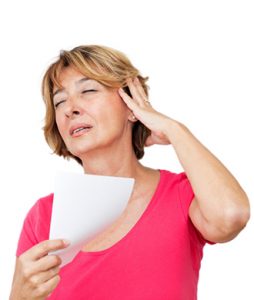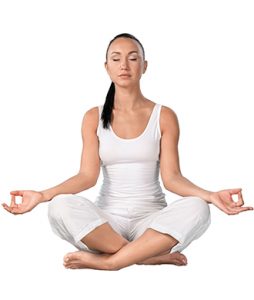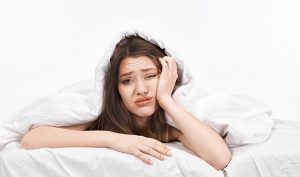Menopause:
When you’ve gone 12 months without having menstrual cycles, you’ve reached menopause. Occasionally, the term is used to refer to the changes you go through soon before or after your period ends, indicating the end of your fertile years. Usually, menopause starts around the age of 50.
Menopause Causes
Women are born with their ovaries where eggs are stored. The hormones – estrogen and progesterone, which regulate ovulation and menstruation are also produced by the ovaries. Menstruation stops and the ovaries stop releasing an egg every month when menopause sets in. Menopause is a usual phase of aging when it starts beyond the age of 40. Some women, however, might go through an early menopause. The condition may result after a hysterectomy that removes the ovaries or from chemotherapy that harms the ovaries. Menopause before the age of 40 is referred to as premature menopause.
Stages of menopause
- Perimenopause
- Menopause
- Post menopaus
Menopause Symptoms
- Inconsistent or missed periods
- Hot flashes
- Night sweats
- Vaginal dryness
- Sore breasts
- Need to urinate more frequently
- Difficulty sleeping
- Emotional changes, Depression
- Dry mouth, skin, or eyes
- Fatigue
- Headaches
- Joint and muscular pains
- Weight gain
- Hair loss
- Libido (sex desire) changes

How Long Do Menopause Symptoms Last?
Each woman’s menopause is unique. Perimenopause symptoms often last for 4 years.
Diagnosis of menopause
- FSH, or follicle-stimulating hormone : This typically increases as you approach menopause.
- Estradiol: Your doctor will learn from this how much estrogen your ovaries are producing. During menopause, this level will decrease.
- The thyroid hormones : This demonstrates thyroid gland issues, which can influence your menstrual cycle and result in symptoms that resemble menopause.
Treatment for symptoms of menopause
Menopause happens naturally. Over time, many symptoms will disappear. Treatments, though, can make you feel better if they’re the cause of your symptoms.
- Hormone replacement therapy (HRT)
- Topical hormone therapy
- Nonhormonal medicines
Many women find that making lifestyle adjustments helps them manage with the symptoms of menopause.
Lifestyle adjustments that may aid women with the symptoms of menopause.
- Drink cool water, sit or sleep close to a fan, and wear layers if experiencing vasomotor symptoms like hot flashes.
- To treat vaginal dryness, use an over-the-counter lubricant or vaginal moisturizer.
- Exercise frequently to improve sleep quality and fight against diseases including osteoporosis, diabetes, and heart disease.
- To stop bladder leaks, strengthen the muscles in your pelvic floor with Kegel exercises.
- Keep your mind and social life engaged to prevent memory issues.
- Eat variety of meals and maintain a healthy weight.
- Engage in relaxing activities like yoga, deep breathing, or massage.


